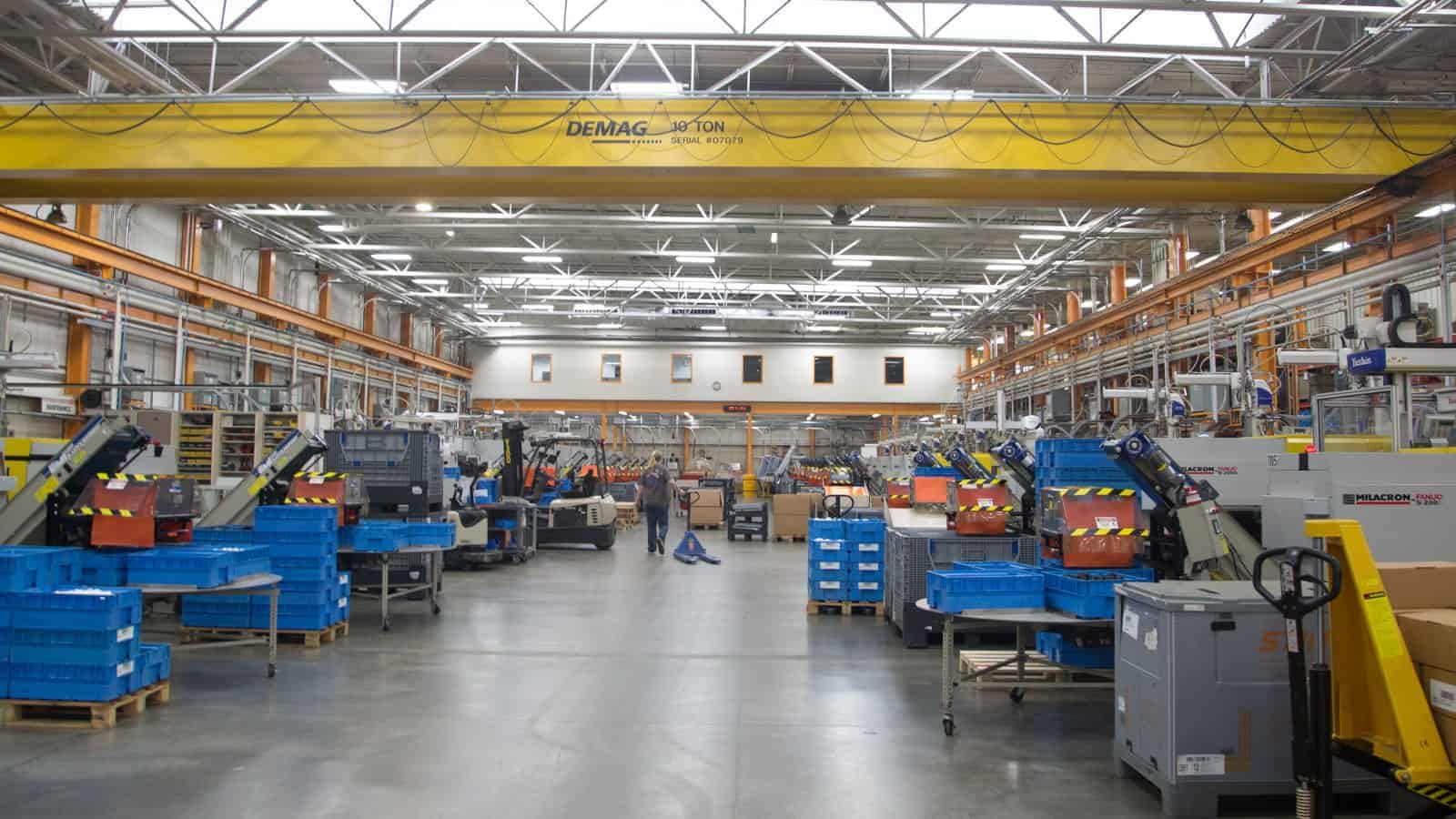Lack of Miscellaneous Tariff Bill Hamstrings Manufacturers

As manufacturers continue to lead America’s economic recovery, they’re doing so in the face of a real—and avoidable—challenge. Because Congress has failed to act, manufacturers in the United States have been operating without a Miscellaneous Tariff Bill since January, which has led to higher prices, greater difficulty in competing with businesses overseas and harm to American workers.
The context: The MTB temporarily eliminates tariffs on imported materials that are either not made in the United States at all or are not available in sufficient quantities. It boosts American competitiveness and ensures that U.S.-made products are competitive with products manufactured outside of the country.
- Typically, the MTB is reauthorized every few years. In 2018, Congress unanimously passed the Miscellaneous Tariff Bill Act of 2018, which reauthorized the MTB through 2020. Unfortunately, the bill expired at the end of last year, and Congress has failed to act, leaving manufacturers in the United States paying extra taxes of $1.3 million per day on vital products that are not available in this country.
What’s happening now: While the Senate passed MTB legislation in June 2021 as part of the U.S. Innovation and Competition Act, the House still needs to act. If the House doesn’t pass bipartisan MTB legislation soon, manufacturers, their workers and their communities will continue to face unnecessary additional costs—as both Dow and Element Electronics have.
Impact on manufacturers in the U.S.: Manufacturers like Dow are feeling the impact. As prices increase for everyone, manufacturers are also battling rising costs, which makes it difficult to manage cost-effective production and impacts the ability to sustain and expand opportunities for American workers.
- “For Dow, the MTB supports as many as 6,000 jobs across the United States, from Michigan and Texas to Illinois, Kentucky and beyond,” said Eric Friedman, the senior director of federal government affairs at Dow. “Dow is the largest materials sciences company in North America. It is critical for us to ensure that we have competitive access to our essential inputs for our U.S. operations and can manage costs It speaks directly to our U.S. manufacturing competitiveness and the incredible workforce that drives innovation.”
Meanwhile, the tariffs also create higher prices for consumers, making it more difficult for Americans to purchase goods from U.S. companies.
- “The MTB’s expiration has reverberations across multiple product lines that Americans use every day, from textiles to cosmetics to cleaning products and insulation,” said Friedman. “These value chains are inextricably tied together. Rising costs for chemicals impacts the 96% of manufacturing downstream that uses our products to make finished goods for both U.S. and global markets. Making our supply chains cost competitive through MTB also supports our consumers who need to manage their costs.”
The harm to small business: For television producer Element Electronics, headquartered in Winnsboro, South Carolina, the lapse of the MTB has caused a significant readjustment, forcing them to downsize their business and lose workers.
- “As a result of the lapse in the MTB…Element has gone from operating at full capacity and over 520 team members at the end of [2020] to operating just four lines, and employment has dropped to 370 team members,” said David Baer, chief operating officer and general counsel at Element Electronics, in recent congressional testimony.
For Element, restoring the MTB is an urgent matter that would help them compete with companies overseas and reengage with consumers across the country and around the world.
- “Leveling the playing field through retroactively restoring the MTB…will allow Element’s employees to once again successfully compete against anyone,” said Baer. “Moreover, passing this bipartisan legislation will allow Element and many other companies to get back to doing what we do best—employing hundreds of hard-working Americans in good-paying jobs in a community that relies on Element as one of its primary sources of economic growth.”
What we’re saying: “The Miscellaneous Tariff Bill supports manufacturers and their workers who make things in America and who have been instrumental to America’s economic resurgence,” said Ali Aafedt, director of trade facilitation policy at the NAM. “Amidst a global pandemic, severe supply chain shortages and other hurdles, Congress’ lack of action on the MTB is yet another challenge. Congress has the opportunity to support manufacturers, workers and consumers in the United States by passing bipartisan MTB legislation by the end of the year.”
Manufacturers: Getting U.S. Methane Strategy Right Is Critical As We Tackle Climate Change
Washington, D.C. – Following the introduction of a proposed rule on methane regulation, the National Association of Manufacturers Vice President of Energy & Resources Policy Rachel Jones released the following statement.
“Getting the U.S. methane strategy right is critical as we tackle climate change, and manufacturers stand ready to work with the Biden administration and lawmakers on both sides of the aisle to address this pivotal issue in a way that doesn’t harm manufacturing in America.
“Manufacturers are working with the EPA to share their expertise, and many companies are leading the way in rolling out technologies that make it possible to lower both emissions and costs. We look forward to learning specific details of the administration’s full methane strategy as our sector continues to work to make our planet healthy for future generations.”
-NAM-
The National Association of Manufacturers is the largest manufacturing association in the United States, representing small and large manufacturers in every industrial sector and in all 50 states. Manufacturing employs more than 12.4 million men and women, contributes $2.52 trillion to the U.S. economy annually and has the largest economic multiplier of any major sector and accounts for 58% of private-sector research and development. The NAM is the powerful voice of the manufacturing community and the leading advocate for a policy agenda that helps manufacturers compete in the global economy and create jobs across the United States. For more information about the NAM or to follow us on Twitter and Facebook, please visit www.nam.org.
NAM Pushes Back on Pass-Through Tax Adjustment
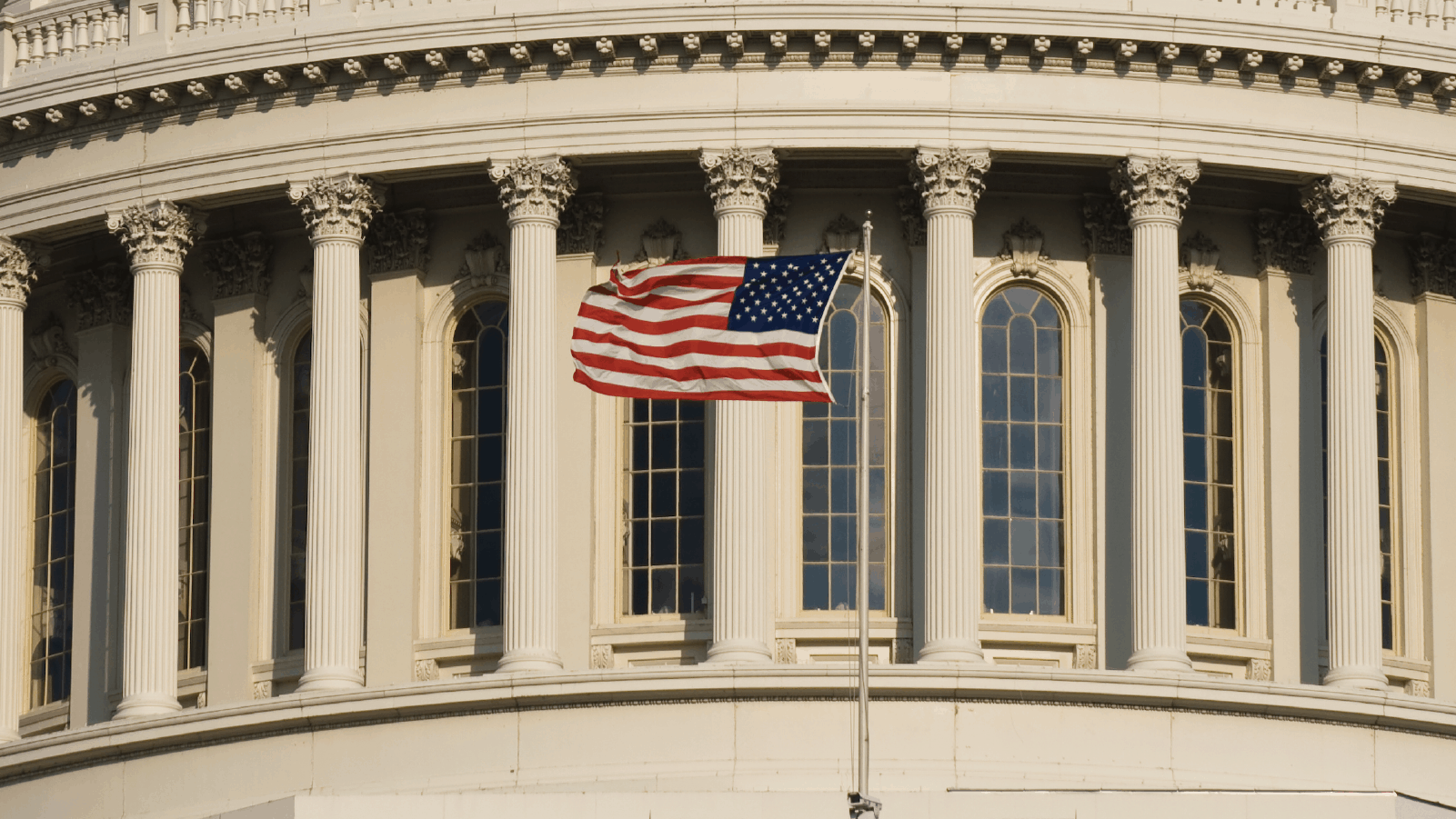
The NAM is urging Congress to scrap a proposed set of tax changes that would harm pass-through entities, including many manufacturers.
The proposal: As Congress continues to hammer out President Biden’s reconciliation bill, members of the House and Senate have been floating new taxes to help pay for the package. Senate Finance Committee Chairman Ron Wyden (D-OR) has released one set of proposals that would change pass-through tax policy in order to raise an estimated $172 billion over 10 years.
The problem: The proposals from Sen. Wyden’s committee could create a series of challenges, including:
- Discouraging partnership formation: The proposal would mandate a complex method for tracking gains and losses, which would likely prevent some partnerships from forming in the first place by making the process more onerous and less rewarding.
- Confusion for existing partnerships: The proposal would make retroactive changes to existing partnerships, creating unnecessary complexity and confusion for pass-through organizations that are already conducting business.
- Barring legitimate transactions: The proposed rules would present some obstacles that are tougher than those imposed on corporations, making it difficult for pass-throughs to conduct legitimate business.
Why it matters: Pass-through entities account for millions of employees and billions of dollars in capital investment. The current structure of pass-through partnership law offers manufacturers a critical way to start and maintain a business—especially for small and medium-sized manufacturers. Altering the tax rules for pass-throughs could change that calculation.
What we’re doing: The NAM has communicated with the committee and will be doing significant outreach to educate Congress on the impact of these proposed rules and to help find the best solutions for a fairer tax code.
What we’re saying: “If enacted, these proposals could discourage new business formation, stifling entrepreneurship, investment and growth,” said NAM Vice President of Tax and Domestic Economic Policy Chris Netram. “The increased complexity in the tax code would be particularly onerous for small and medium-sized manufacturers who could be forced to divert resources from operations to tax compliance.”
One Small Manufacturer Battles Thousands of Counterfeits
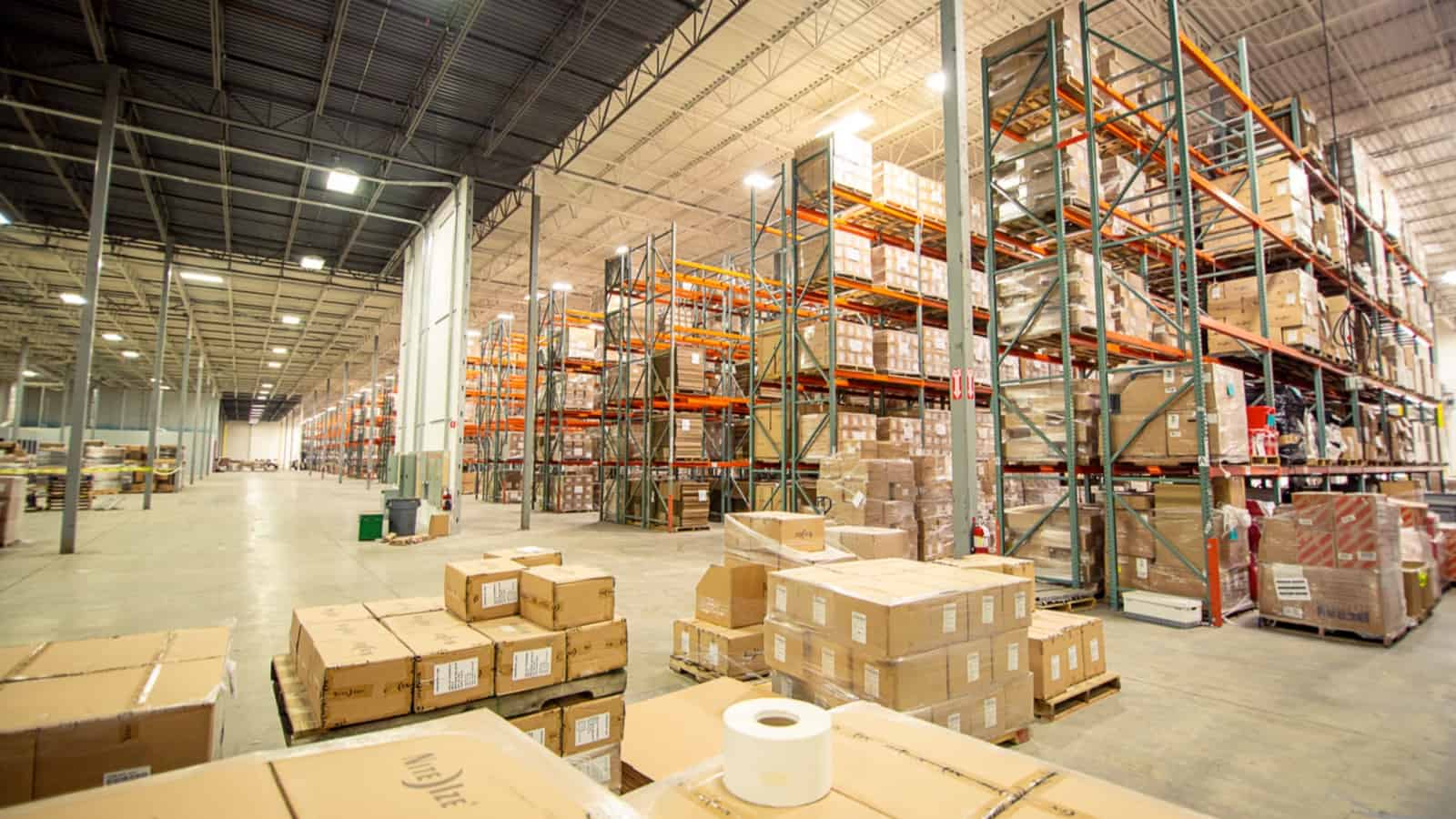
If you can buy anything online, how can you make sure that what you’re buying is genuine?
That’s a problem facing consumers and manufacturers alike. According to the NAM’s research, fake and counterfeit products cost the United States $131 billion and 325,000 jobs in 2019 alone—and estimates suggest that global trade in counterfeits exceeds $500 billion per year. The explosive rise of counterfeit goods has heavily impacted manufacturers, requiring them to fight back on a range of fronts.
For Clint Todd—the chief legal officer at Nite Ize, Inc., a manufacturer of mobile, pet and key accessories, as well as hardware, lighting and other products—that challenge is very real and only getting worse.
“In 2019, we took down 75,000 counterfeit listings and websites,” said Todd. “And we’re a small business, so you can guess how large the problem is countrywide.”
Why it’s happening: First, the online nature of e-commerce makes it more difficult to ensure accountability. Many counterfeit products are purchased through third-party sellers that may or may not provide real contact information.
- In practice, many platforms have not been held liable for counterfeit products sold on their platforms by these third-party sellers, even as they facilitate their sale. That means there’s often little manufacturers can do beyond asking the platforms to remove the listing.
- Second, a large proportion of the sellers of counterfeit goods are located in China and Hong Kong, making it much more challenging for U.S. companies to bring effective lawsuits, even if they do have accurate seller contact information.
“You have this odd confluence of laws and tech development and the involvement of another country that has driven this exponential increase in counterfeits,” said Todd. “You don’t have to be a rocket scientist to see how the inability to fight the problem has been detrimental to U.S. businesses.”
How manufacturers respond: Manufacturers and others have been forced into a piecemeal strategy that includes using software tracking services to find fraudulent trademarks and images; working with third-party sites to remove listings for knockoff merchandise; bringing lawsuits against counterfeiters where possible; and coordinating with the International Trade Commission. That strategy is challenging for lots of manufacturers but is particularly hard on small and medium-sized companies that may have fewer resources yet can be devastated when their products are ripped off.
What we need: The NAM’s report, “Countering Counterfeits,” details solutions for the federal government and the private sector, including:
- Requiring e-commerce platforms to reduce the availability of counterfeits;
- Modernizing enforcement laws and tactics to keep pace with counterfeiting technology;
- Streamlining government coordination;
- Improving private-sector collaboration; and
- Empowering consumers to avoid counterfeit goods.
As Todd put it, “It’ll take a multi-stakeholder approach. It’s not just the government. It’s not just manufacturers. It’s not just the online platforms. It has to be a coordinated approach with all those stakeholders to get to the heart of the matter.”
What the NAM is doing: The NAM is leading the effort against counterfeiting and has already made significant headway with policymakers. Among its recent highlights:
- After years of NAM advocacy, the Department of Homeland Security has implemented the Synthetics Trafficking and Overdose Prevention (STOP) Act of 2018, which steps up screenings for international mail shipments—one way in which counterfeits get into the U.S.
- In late 2020, Congress also implemented several NAM recommendations, including bolstering federal oversight at U.S. ports; cracking down on scammers and other bad actors exploiting the pandemic by producing fake goods or engaging in price gouging; and allowing the FDA to seize and destroy dangerous counterfeit medical devices.
- Both the Senate and House have seen the introduction of bipartisan bills that incorporate NAM recommendations on addressing the sale of counterfeits through online platforms.
The last word: “People need to understand the scope of the problem and how pervasive it has become,” said Todd. “Everyone needs to know how often counterfeits and knockoffs are affecting U.S. companies and how expensive and difficult it is to combat the problem with the tools we have at our disposal now.”
NAM Pushes Back on Global Minimum Tax Increase
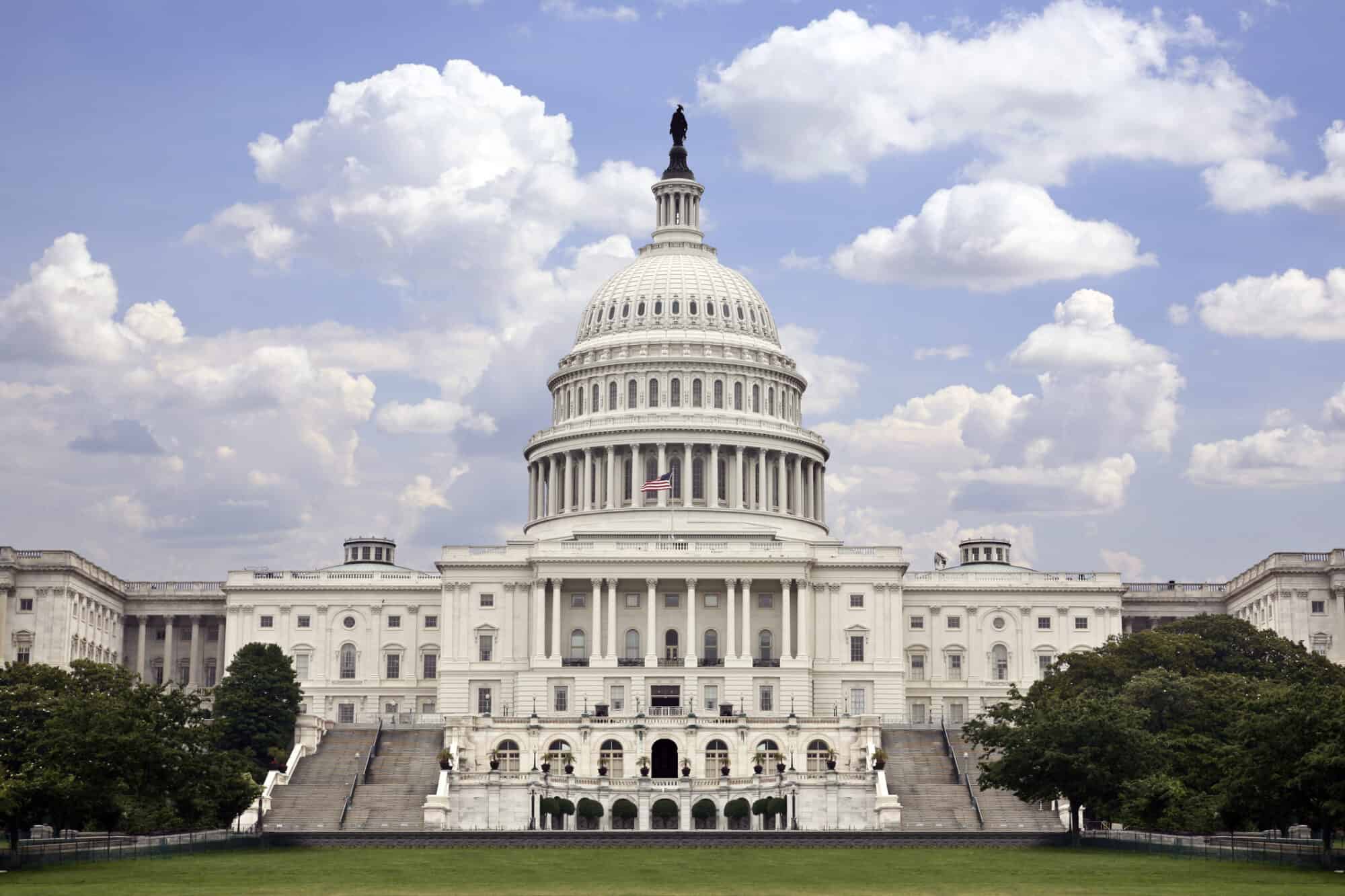
The NAM is fighting against congressional efforts to increase the minimum tax on U.S. companies’ foreign earnings above the rate recently reached by a global minimum tax deal—thereby putting globally engaged manufacturers at a significant disadvantage.
The context: For a number of years, the Organisation for Economic Co-operation and Development has been leading global tax negotiations that would fundamentally reshape the current international tax system. A centerpiece of the effort is a 15% global minimum tax that more than 130 countries signed off on earlier this month. The deal is intended to be implemented in 2023.
The U.S. angle: The United States already has a global minimum tax, called the global intangible low-taxed income tax, or GILTI, which operates as a minimum tax on the foreign earnings of U.S. multinational corporations. Now, Congress is considering increasing it as part of the reconciliation legislation. In particular, the pending House reconciliation bill would increase the GILTI rate from the current 13.125% tax rate to 17.4%—above the proposed global minimum tax rate.
The problem: The NAM has made clear that the United States shouldn’t move forward with any changes to GILTI before other countries implement a minimum tax, and that the U.S. shouldn’t have a minimum tax regime that results in a higher tax burden than the rest of the world. Such a burden on globally engaged companies would make it more difficult for these companies, including manufacturers, to compete and succeed in the global marketplace.
What we’re saying: “If Congress adopts a harsher tax regime than the rest of the world, it would tilt the scales against manufacturers and manufacturing workers in the U.S.,” said NAM Vice President of Tax and Domestic Economic Policy Chris Netram. “A harsher regime would harm manufacturers, reducing their ability to compete around the world and invest in high-paying jobs here at home.”
Learn more: One NAM study showed that proposed harmful changes to the GILTI regime could cost up to 1 million U.S. jobs.
NAM Sues SEC to Maintain Proxy Firm Oversight
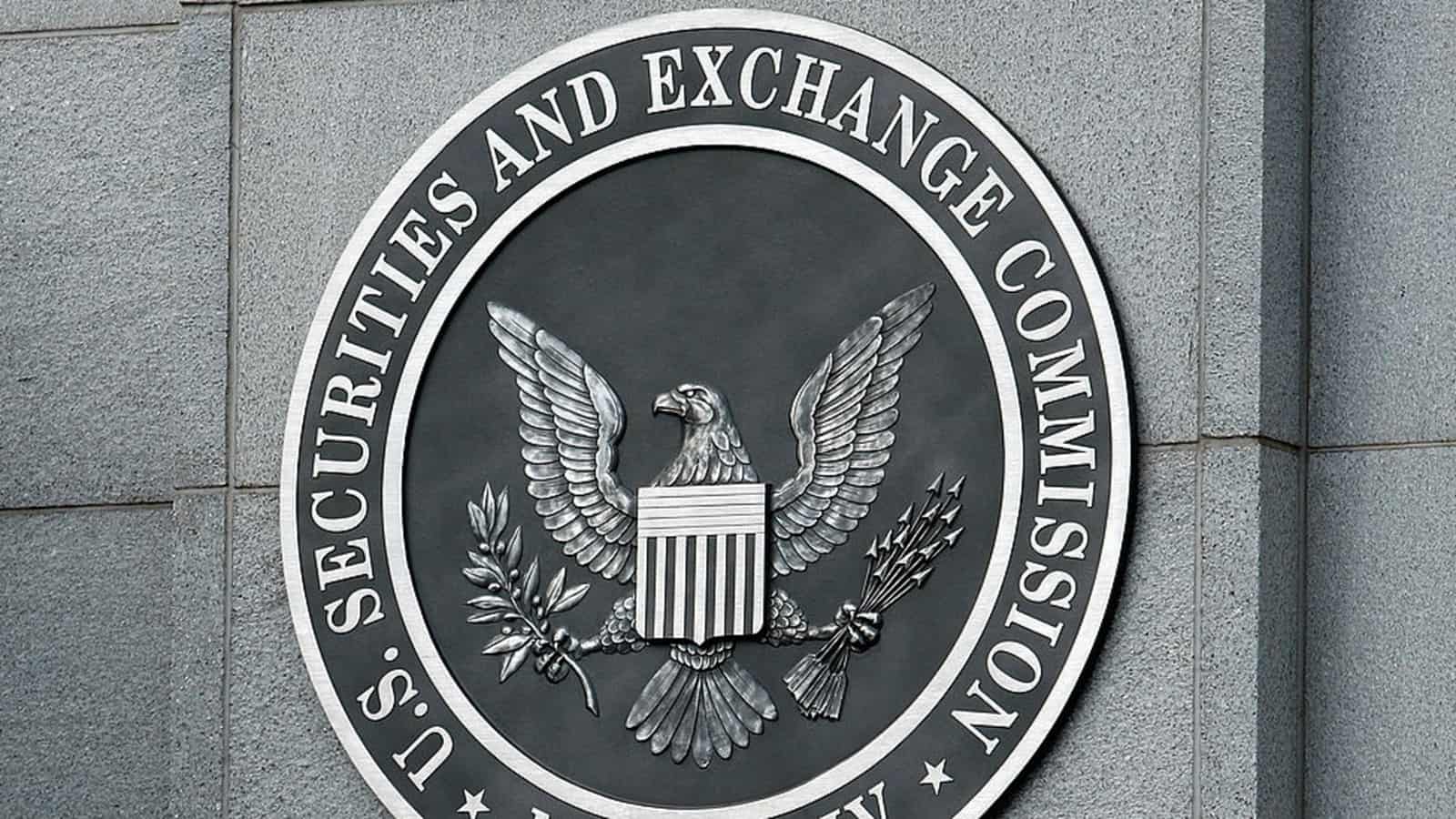
The NAM is stepping up to protect a hard-won victory on an issue critical to public company governance—oversight of proxy advisory firms.
The background: Proxy firms advise institutional investors (like retirement fund managers) on how to vote on the policies of the companies they invest in. The problem is that the two main proxy firms—ISS and Glass Lewis—have generally operated without any oversight, and as a result, their work has relied on questionable methodologies and ignored conflicts of interest. These issues have often caused problems for manufacturers and their shareholders given the power these firms wield.
- Last year, following years of advocacy by the NAM, the Securities and Exchange Commission finalized a rule that provides targeted oversight of these firms. The rule requires that proxy firms disclose conflicts of interest and create procedures to give companies a chance to respond to their recommendations.
The problem: Following the change in presidential administrations, the SEC announced that it is taking steps to revise or rescind the rule that was finalized last year. On top of that, it has suspended enforcement of the rule during the review process and plans to prevent many provisions from going into effect as planned on Dec. 1.
Our move: The NAM is filing suit against the SEC for refusing to enforce the rule without going through the official process to change or replace it, as required under the Administrative Procedure Act. Agencies cannot set aside regulations they happen to disagree with, and the NAM is contending that the SEC has acted unlawfully by effectively rescinding the rule without inviting public comment on its impact on market participants, including manufacturers. Of course, the NAM also intends to fight any effort to revise or rescind the rule under normal procedures, but that comes later.
The stakes: If the NAM wins the suit, the SEC will have to leave the rule on the books until it comes up with substitute regulations through notice-and-comment rulemaking, and proxy firms will have to comply with the basic safeguards required under the rule.
The last word: “The SEC’s rule on proxy advisory firms was a victory for manufacturers, but also for accountability and transparency,” said NAM Senior Vice President and General Counsel Linda Kelly. “The NAM intends to stand up for this rule, to hold the SEC to its responsibilities and to ensure that manufacturers on the public market and manufacturing workers with retirement savings are protected from proxy firms’ outsized influence.”
Manufacturers Fight SEC’s About-Face on Proxy Advisory Rule
Washington, D.C. – The National Association of Manufacturers filed a complaint in federal court against the Securities and Exchange Commission for its nonenforcement of the lawfully adopted 2020 final rule on proxy advisory firms—unregulated third parties with outsized influence on shareholder votes and manufacturers’ corporate governance policies.
“The SEC is changing course, attempting to suspend a commonsense rule that enhances transparency into the work of proxy advisory firms without any opportunity for public comment by the NAM or anyone else,” said NAM President and CEO Jay Timmons. “When the SEC finalized this reasonable, light-touch regulation, manufacturers strongly supported these necessary reforms because they protect the interests of manufacturing workers, retirees and everyday investors. The NAM Legal Center is filing suit to protect manufacturers from this unlawful about-face and to ensure that this rule stays on the books.”
Background:
The NAM has long advocated increased oversight of proxy advisory firms—little-known, unregulated entities that exert enormous influence over publicly traded manufacturers. These firms have significant conflicts of interest and issue error-filled, one-size-fits-all proxy voting recommendations that can impact the direction of a business and the value of investors’ shares. In July 2020, the SEC issued final regulations limiting proxy firms’ outsized influence, a move Timmons called a “long-sought, major win for the industry and millions of manufacturing workers.”
In October 2020, the NAM filed a motion to intervene in ISS v. SEC (ISS’s attempt to overturn the rule), followed by a motion for summary judgment outlining why the SEC’s lawful, reasonable and minimally invasive rule must be upheld. In June 2021, the SEC announced it was reviewing the rule and suspending enforcement thereof, at which point NAM Senior Vice President and General Counsel Linda Kelly made clear that the NAM would fight “any efforts to bypass the required notice-and-comment process to keep this lawfully issued rule on ice indefinitely.”
-NAM-
The National Association of Manufacturers is the largest manufacturing association in the United States, representing small and large manufacturers in every industrial sector and in all 50 states. Manufacturing employs more than 12.4 million men and women, contributes $2.52 trillion to the U.S. economy annually and has the largest economic multiplier of any major sector and accounts for 58% of private-sector research and development. The NAM is the powerful voice of the manufacturing community and the leading advocate for a policy agenda that helps manufacturers compete in the global economy and create jobs across the United States. For more information about the NAM or to follow us on Twitter and Facebook, please visit www.nam.org.
How Tax Reform Helped a Manufacturer Expand

INX International, a global manufacturer of high-performance printing inks and coatings, has a strong and growing presence in the U.S. thanks to tax reform.
The company’s success has been made possible in part by tax reform’s lower corporate tax rate and a foreign-derived intangible income (FDII) deduction, which encourages companies to develop and keep intellectual property in the U.S. by providing a lower tax rate for foreign sales based on U.S. IP. These reforms have helped manufacturers like INX invest in their U.S.-based facilities and employees—and INX has done exactly that.
Manufacturers wanted: From 2017 to today, the company has hired 89 people—a 7% increase in personnel. And even with the significant increase in workers, INX has been able to use its tax savings to pay good wages and benefits for all its employees.
- “We have not had one year since 2017 without raises or an increase in benefits,” said INX Vice President of Tax and Finance David Rossi. “That’s because the company has been doing pretty well—reaping the benefits from the economy and tax reform.”
Facilities expanded: INX has also worked to build new production capabilities, financed in part by the 2017 changes to the tax code.
- “The FDII deduction gave us $1.1 million in 2020 alone,” said Rossi. “That’s two-thirds of a solid equipment buildout for a new location. That number is significant to us.”
IP kept local: Provisions like the FDII deduction have made it possible for INX to keep their intellectual property in the United States, rather than moving critical production to facilities in other countries where labor and production costs might be lower.
- “We’re brick-and-mortar manufacturing in the U.S., and we keep our IP here; we keep our R&D here,” said Rossi. “Our ideas are here. Everything is developed here in the United States and kept in the United States.”
Continued benefits: The highly competitive labor market means that INX is also using its tax reform savings to attract and retain workers—making stability and certainty around these tax rules even more important.
- “We have dramatically increased starting wages, due to competition for manufacturing workers,” said INX CEO John Hrdlick. “Employees hired last year are also getting an increase. We’re offering incentives for referrals for new positions and spending a fair amount of money to recruit and keep people and stay ahead of our competition. If we weren’t in a strong position now, we wouldn’t be able to do that.”
The road ahead: The team at INX is concerned about what might happen if tax reform were to be rolled back and their tax burden were to increase. Especially with ongoing shortages of labor and materials—and with delays in shipping and freight transport—higher taxes would make it more difficult to continue the kinds of investments they have made.
- “Right now, any savings get invested into our people and our operations,” said INX Chief Financial Officer Bryce Kristo. “Any loss will negatively affect that.”
- “If there’s change, you’re talking about smaller facilities, less expansion or no expansion at all,” said Rossi.
The last word: “We are in a very competitive industry and an important industry,” said Hrdlick. “We’re almost a $500 million company, but given the high competitiveness, we are in single-digit operating income. All these proposed tax increases will pull some of that away. Everything we get, we invest in our people—and if that number is dramatically impacted, that’s going to be a problem for us.”
The NAM Looks Ahead
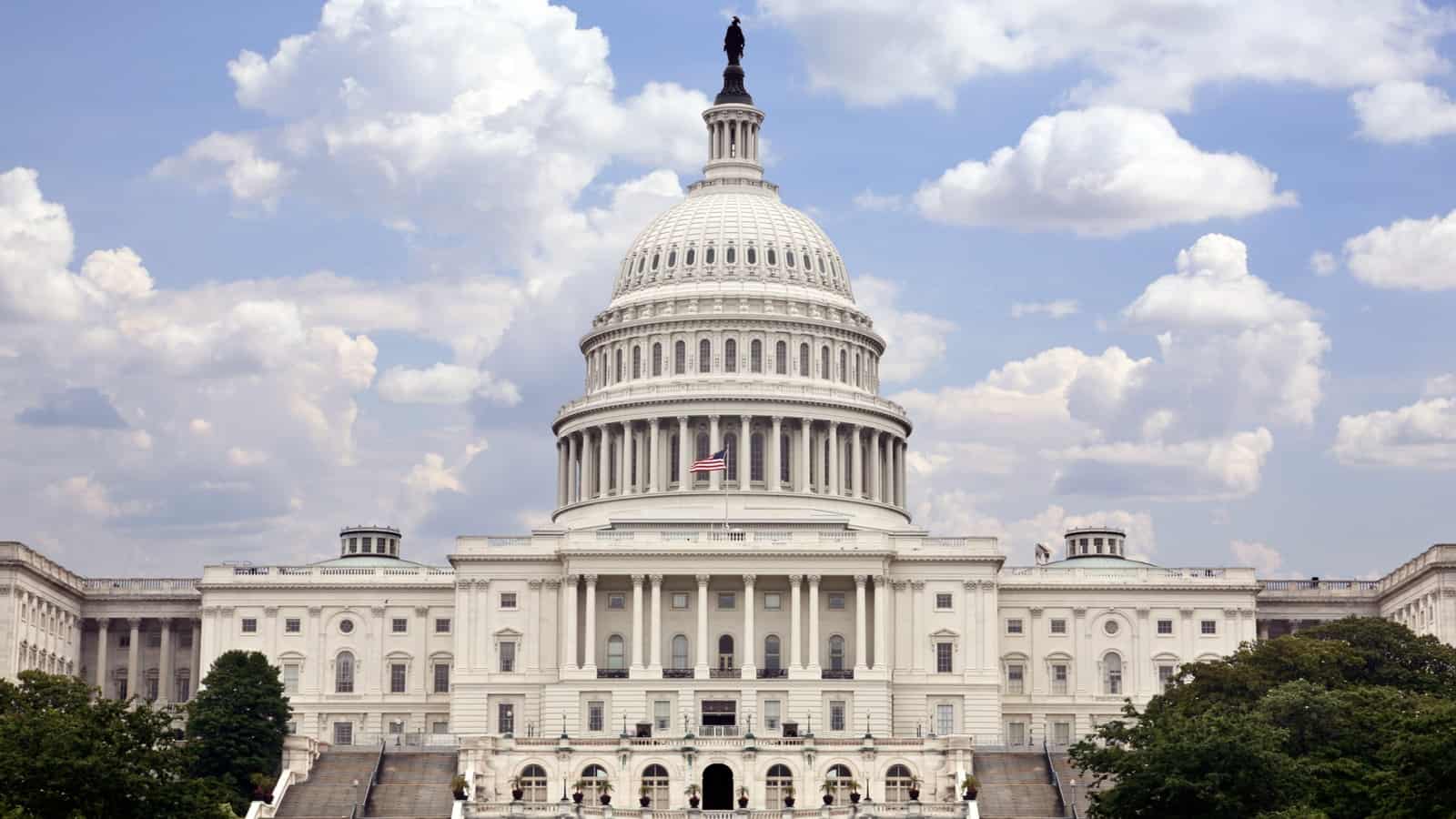
As Congress reconvenes this fall, the NAM will continue to make sure manufacturers’ priorities are front and center, driving the legislative conversation and shaping America’s future. We spoke with the NAM’s policy leaders to get a sense of the agenda going forward and discussed two bills in particular that are on manufacturers’ radar.
Bipartisan infrastructure reform: The $1.2 trillion investment would fund roads and bridges, as well as upgrades of the electric power grid and energy infrastructure, passenger and freight rail, public transit, airports, water systems, broadband and other critical priorities. Many of the bill’s investments were also initially highlighted in the NAM’s Building to Win framework—the NAM’s plan to invest in America’s infrastructure. The NAM will continue to work with Congress and President Biden to help move this bill across the finish line and ensure we can build the world-class infrastructure manufacturers deserve.
- “It’s critical that this moves forward,” said NAM Senior Vice President of Policy and Government Relations Aric Newhouse. “The bipartisan infrastructure reform bill would create transformative change—and every day that passes without it is a lost opportunity for manufacturers.”
- “We are using our influence to call on Congress to finalize this bill and move it to the president’s desk,” added NAM Vice President of Infrastructure, Innovation and Human Resources Policy Robyn Boerstling. “We also intend to stay engaged after it’s signed into law. This is a significant federal investment, with a lot of new programs and opportunities—and the NAM will be here to help steer our members through the implementation process.”
Reconciliation: Democrats are considering a multitrillion-dollar reconciliation bill that would supplement the bipartisan infrastructure reform bill with additional priorities in areas like health care, climate change and labor rules. As this bill moves ahead, the NAM is focused on preventing changes in corporate taxes, individual taxes, estate taxes and international tax policy that could harm manufacturers; blocking policies that could damage the employer–employee relationship; and standing up against efforts to stifle innovation in the pharmaceutical sector.
- Taxes: The bill proposes more than $2 trillion in tax increases that could hit every segment of the manufacturing economy. Proposed changes could affect big corporations through corporate taxes; globally engaged firms through changes to the Global Intangible Low-Taxed Income (GILTI) provision, the Base Erosion and Anti-Abuse Tax (BEAT) and a more limited incentive to locate intellectual property in the U.S.; family-owned businesses through estate tax reforms and increases to the capital gains rate; and small and medium manufacturers through changes to the tax system for pass-through entities. The bill would also make it harder to finance new equipment purchases through new limitations on the deductibility of interest on business loans.
- “These changes would affect every manufacturer, increasing the burden on corporations and pass-through entities,” said NAM Vice President of Tax and Domestic Economic Policy Chris Netram. “And we intend to stand up for our members, so that big and small manufacturers alike can compete, invest and grow here in the United States and around the world.”
- Pharmaceutical innovation: The reconciliation bill also contains provisions that would introduce price controls on certain medicines and harm the capacity to innovate by making it more difficult for pharmaceutical companies to invest in research and development, potentially hampering the creation of new medications and treatments. The NAM is fighting against these provisions to ensure that pharmaceutical companies are able to robustly invest in lifesaving cures.
- “Congress must take the long view on innovation,” said Newhouse. “If we take steps that harm pharmaceutical companies’ ability to innovate today, fewer lifesaving drugs will be available in the future. We think that’s a mistake.”
- Labor: In addition, the reconciliation bill in its current form seeks to impose some of the provisions of the Protecting the Right to Organize Act, or PRO Act. The bill, which previously passed the House in 2020, has the potential to reshape the relationship between employers and employees. The NAM will work to ensure these changes are not included.
- “The PRO Act is so broad and so sweeping in terms of its changes to the employee–employer environment that it comes at the expense of the manufacturing sector,” said Boerstling.
- “We’re going to do everything we can to keep this out of reconciliation because we believe the existing employee–employer relationship is working,” said Newhouse. “Now is not the time to blow it up with antiquated approaches to labor policy.”
The bottom line: This fall promises to be a busy time for policymakers in Washington, and the NAM intends to keep them focused on the needs and priorities of manufacturers across the country.
Manufacturers Share Commitment to Vaccination
Requirements Must Be Structured in a Way That Does Not Negatively Impact the Operations of Manufacturers
Washington, D.C. – Following President Biden’s speech on new measures to combat COVID-19, National Association of Manufacturers President and CEO Jay Timmons released this statement:
“Americans can be grateful to President Trump for ‘Operation Warp Speed’ that enabled the United States to develop the lifesaving vaccines against COVID-19 and to President Biden for his continued focus on getting Americans vaccinated. We share their steadfast focus, and manufacturers have led the way in promoting the lifesaving COVID-19 vaccines. They are safe and effective vaccines made for us, by people like us—manufacturers in America.
“We look forward to working with the administration to ensure any vaccine requirements are structured in a way that does not negatively impact the operations of manufacturers that have been leading through the pandemic to keep Americans safe. It is important that undue compliance costs do not burden manufacturers, large and small alike.
“Getting all eligible Americans vaccinated will, first and foremost, reduce hospitalizations and save lives. But it is also an economic imperative in that our recovery and quality of life depend on our ability to end this pandemic. This is why the NAM and The Manufacturing Institute continue equipping manufacturers of all sizes with resources to promote vaccination through our ‘This Is Our Shot’ project.”
-NAM-
The National Association of Manufacturers is the largest manufacturing association in the United States, representing small and large manufacturers in every industrial sector and in all 50 states. Manufacturing employs more than 12.3 million men and women, contributes $2.35 trillion to the U.S. economy annually and has the largest economic multiplier of any major sector and accounts for 58% of private-sector research and development. The NAM is the powerful voice of the manufacturing community and the leading advocate for a policy agenda that helps manufacturers compete in the global economy and create jobs across the United States. For more information about the NAM or to follow us on Twitter and Facebook, please visit www.nam.org
